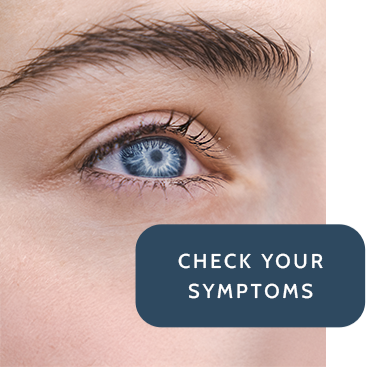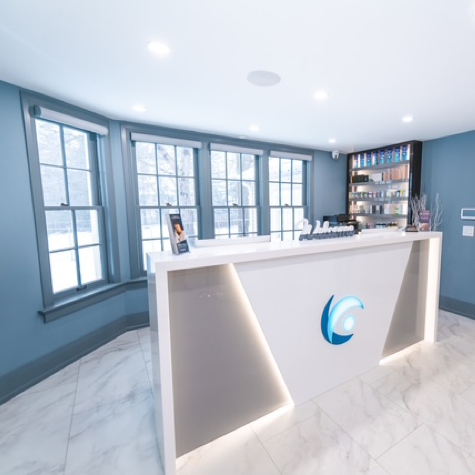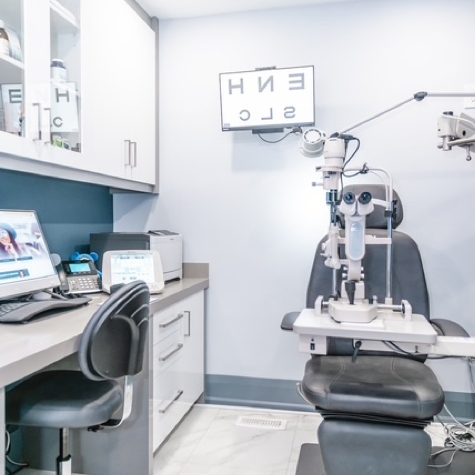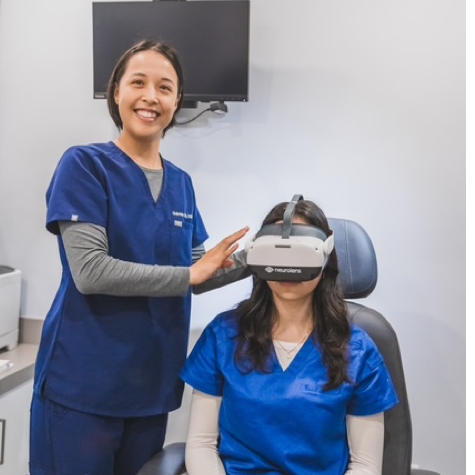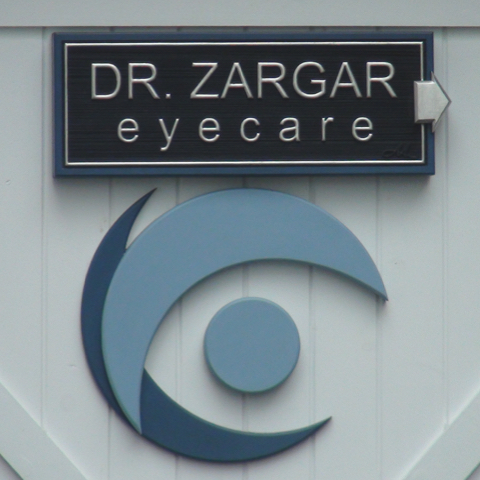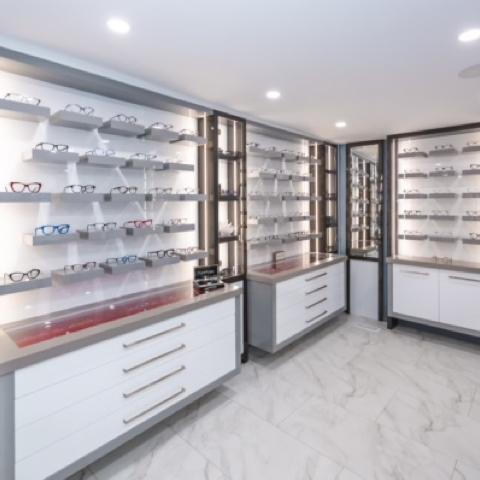Cataracts are the clouding of the eye’s natural lens. They’re a normal part of aging and can cause blurry vision, difficulty seeing at night, and a general decrease in visual acuity.
Cataract surgery is a common procedure used to treat cataracts. During the surgery, the cloudy lens is removed and replaced with an artificial one, typically resulting in clearer vision.
While any medical procedure can raise questions, most patients report minimal discomfort during and after cataract surgery. The entire procedure takes around 30 minutes and is done under local anesthesia, so you will be awake but won’t feel any pain.
After the surgery, you may experience some mild pain and irritation as your eye heals. This is normal and your optometrist can help manage these symptoms.
What Are Cataracts?
Inside your eye, right near the front, is a small, crystalline lens. It’s responsible for focusing light onto the retina, a light-sensitive layer at the back of your eye, allowing you to see clearly. The lens is flexible and changes shape to help you focus on objects at different distances.
Over time, proteins in your lens can break down and clump together, forming cloudy areas. These cloudy areas are cataracts. Because they block light from reaching the retina, cataracts can cause blurry vision, muted colours, and difficulty seeing at night.
Cataracts commonly develop due to natural age-related changes in the eye. However, they can also be caused by:
- Injury
- UV exposure
- Certain diseases, such as diabetes
- Some medications, including corticosteroids
Cataracts typically develop slowly, often affecting one eye or both at the same time. Early on, you might not notice any vision changes. However, as cataracts grow, they can significantly impair your vision.
Despite being easily treated, cataracts are one of the leading causes of blindness worldwide.
Common Cataracts Symptoms
- Blurry or hazy vision
- Difficulty seeing at night
- Sensitivity to light and glare
- Seeing halos around lights
- Faded or yellowed colours
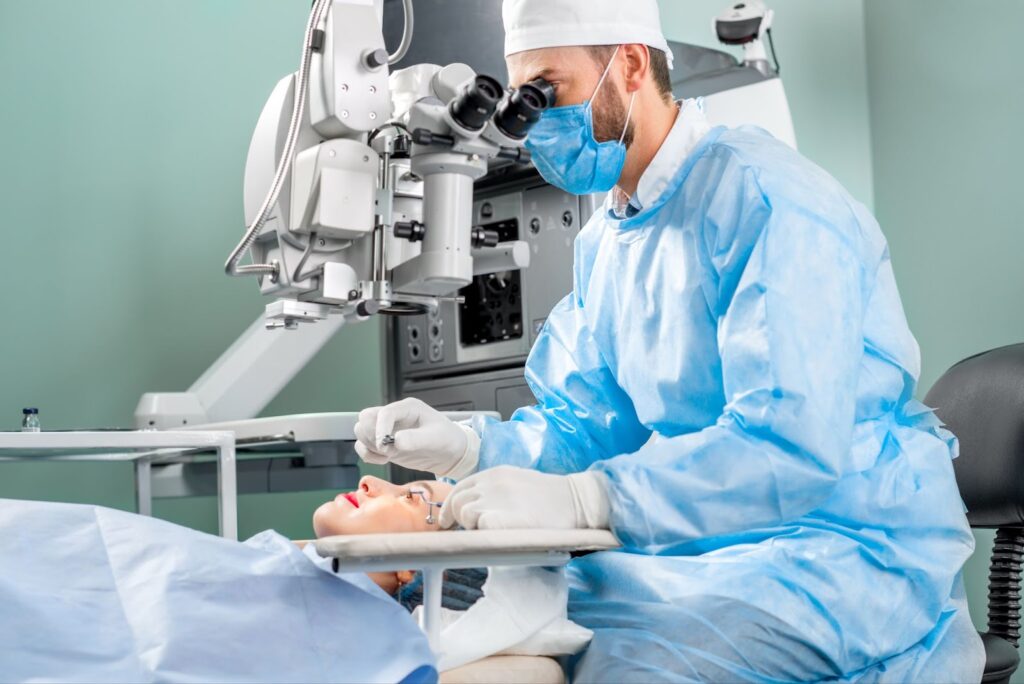
What Is Cataract Surgery?
Cataract surgery is a highly successful procedure that restores vision by removing the cloudy lens. It’s one of the most commonly performed surgeries worldwide and has a reputation for safety and effectiveness.
During this outpatient procedure, your ophthalmologist (eye surgeon) carefully removes your cloudy natural lens and replaces it with a clear artificial lens called an intraocular lens (IOL).
Treating Eye Dry in Preparation for Cataract Surgery
Some pre-existing conditions, like dry eye, can affect the results of cataract surgery.
Dry eye is a common condition where your eyes don’t produce enough tears, or the tears they produce aren’t of high enough quality, leading to feelings of dryness, irritation, and blurred vision.
Addressing dry eye before cataract surgery can offer several benefits:
- Reduced discomfort: Controlled dry eye means less irritation and stinging, leading to a more comfortable surgical experience.
- Improved healing: Healthy tears promote healing after surgery.
- Sharper vision: A healthy tear film allows for more accurate measurements of your eye for the artificial lens.
At Dr. Zargar Eyecare, we often recommend LipiFlow for dry eye treatment before cataract surgery. This innovative procedure targets meibomian gland dysfunction (MGD), a leading cause of dry eye.
MGD occurs when the oil glands in your eyelids become blocked, resulting in insufficient oil production and a disrupted tear film. LipiFlow uses gentle heat and pressure to clear the blockages and restore proper function to your oil glands, leading to improved tear production and overall eye health.
By addressing dry eye before cataract surgery, you can experience a more comfortable procedure with fewer complications.
What to Expect from Cataract Surgery
Cataract surgery is an outpatient procedure, meaning you can go home the same day. However, you won’t be able to drive yourself, so you’ll need somebody else to drive you.
Cataract surgery is performed in a few steps:
- Anaesthetic eye drops are administered to numb the area and prevent any discomfort during the procedure.
- A tiny incision is made in your cornea, the clear outer layer of your eye.
- Your natural lens is removed using a small ultrasound probe or through a process called phacoemulsification.
- The artificial lens (IOL) is inserted in the location where your natural lens was.
- The incision is self-sealing and does not require stitches.
The entire surgery typically takes less than 30 minutes. Most patients report improved vision within a few days after surgery, with full recovery within a few weeks.
During the healing process, you’ll need to take care of your eye and avoid activities that could put pressure on it. Follow any advice from your surgeon and optometrist, and you should enjoy a swift, smooth recovery.
Your Partners in Dry Eye & Cataract Management
If you have cataracts, contact our team at Dr. Zargar Eyecare. We can provide a diagnosis and recommend a personalized treatment plan to help you achieve clear, comfortable vision.




